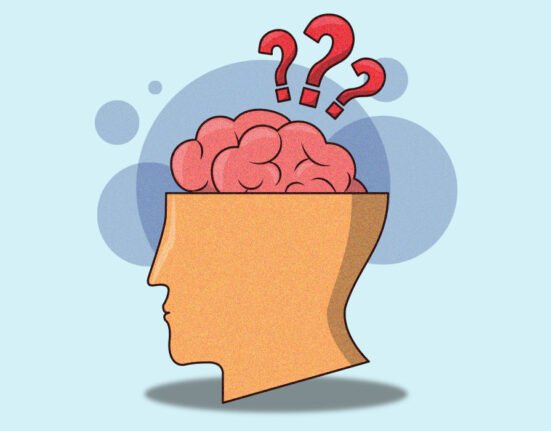Mental health is one of the fundamental parts of health. It is not just the absence of psychiatric or psychological disorders. A principle of the constitution of WHO also states that ‘Health is a state of complete physical, mental and social well-being and not merely the absence of disease or infirmity.’ Furthermore, mental health is a state of well-being in which an individual realizes his or her abilities, can cope with the normal stresses of life, can work productively, and can contribute to his or her community (WHO, 2014). It affects our physical health, daily life, work, relationships, and almost every sphere. Mental health involves maintaining a balance between what was, what is, and what will be with the help of healthy cognitive functioning. Cognitive processes serve as a vital factor in bolstering mental health. Know their pivotal role in enhancing overall well-being and psychological resilience.
“Without mental health, there can be no true physical health.”
Dr. Brock Chisholm, the first Director-General of the World Health Organization (WHO) in 1954
Fundamental Operations of the Human Mind
Cognitive processes are the basic mental functions with which an individual works, these include: thinking, execution, problem-solving, decision-making, remembering, and interpreting. They are also referred to as the higher-level mental functions of the brain. Attention, perception, learning, memory, language, and thought (decision-making, reasoning, and problem-solving) are the key cognitive processes. All these mental functions help us perceive the world, learn new things, interact with the world, and make decisions. In simple words, cognitive processes give meaning to sensation and stimulation. Serial or sequential processing and parallel or simultaneous processing approaches explain the working of all these essential functions.
Also Read: Sleep breathing affects memory processing: Research
The cognitive processes of an individual affect his mental health. However, this link also works in the other direction, that is, the mental health of a person affects his cognitive processes. Our mental health and cognitive processes are interdependent. This inter-dependence is not only helpful for researchers and psychologists to gain an understanding of how these mental functions are related to mental health. It also helps the common man to deal with everyday emotional and psychological difficulties. Cognition is the set of mental processes that occur between the reception of stimuli and the response thereto (Oritz, 2009). The behavior of an individual is a result of the cognitive processes of the individual. Adequate cognitive functioning is required for doing even the simple tasks of daily life, such as: brushing teeth and getting ready. It is impossible to imagine a normal life without these vital elements of human existence.
Factors Influencing Cognitive Processes
Age, education, socioeconomic characteristics, health, life factors (like smoking, drinking, and drug abuse), lifestyle factors such as dietary intake, physical activity, and sleeping habits, access to basic resources, positive routines and practices, home experiences, and other environmental factors are the key determinants of cognitive processes. All these factors play a significant role in the formation and development of a healthy individual. Inadequacy in any of these areas can lead to a deficit in cognitive functioning (Jirout, Crouch, Turnbull et al., 2019). In brief, processing which takes place between the sensation of stimuli and the resultant output i.e. behavior, is influenced by a number of elements. The presence or absence of these elements can either make or break an individual’s mental health. These factors influence the functioning of the brain and ultimately every step of mental processes.
Also Read: Cognitive Biases in Everyday Life
Shifren et al. (1999) found that cognitive processes, predict mental health in individuals. They found cognitive functioning to be directly related to mental health. Participants in their study, who performed well on cognitive tasks reported high self-efficacy (belief in our abilities to meet the challenges) and better mental health, than those who performed poorly on the same cognitive tasks. Thus, it becomes evident that the way an individual thinks, attends to, perceives, memorizes, solves problems, and interprets, assists him in improving or impairing his mental health. Mental health and healthy cognitive functioning go hand in hand. Healthy cognitive processes enhance the mental as well as overall health of individuals.
Cognitive Foundation:
Dr. A.P.J. Abdul Kalam, Malala Yousafzai, Oprah Winfrey and Thomas Edison are a few examples of persons who bounced back from the most dreadful situations to the top most positions. They are the real examples of resilience. If you will explore the life of these eminent personalities, it will be easier to understand how healthy cognitive functioning strengthens mental health. Trivedi (2006) reported impaired intellectual functioning (executive, attentional, and memory frequently) in most of the patients with psychiatric and psychological disorders. In addition, Raz and Rodrigue (2006) found evidence for how cognitive deficits lead to poor mental health and weak mental health impairs intellectual functioning.
Optimistic Thinking During Adversity
Cognitive capability is a key to mental and overall health. Good mental health is also associated with reduced risk of physical diseases and overall well-being. This road to the final destination of ‘well-being’ is paved with stress and hindrances. Coronavirus disease (COVID-19) is one such barrier that has rigorously examined our mental health for more than a year now. We all are fighting an inner battle with ourselves to maintain that optimum level of functioning. We are constantly fighting the fear of getting infected, stress arising because of constrictions to stay indoors, learning new ways of working, deficient proximity from loved ones, and home-schooling for children. Yao et al. (2020) also reported in their work that, separation from loved ones, loss of freedom, boredom, and uncertainty can cause deterioration in an individual’s mental health.
Also Read: Let’s Understand the Counselling Process
Cognitive processes of paying attention, interpretation, reasoning, memory, and perception along with other primary mental functions are working in dealing with this lethal disease at physical, mental, and social levels. We have been reading and listening about ‘immunity as one of the combatants’ against this fatal virus. Immunity is the immune system’s way of protecting the body against an infectious disease. Positive or optimistic thinking has been related to a better immune system. A better immune system is related to healthier coping.
A Pathway to Mental Well-being and Success:
This optimistic thinking encompasses all of the basic processes of cognition and triggers positive emotions of joy, love, contentment, and hope. Segerstrom and Miller (2004) documented that positive emotions normalize the levels of corticosteroids and help not reach global immune suppression (poor functioning of immunity). Lyubomirsky et al. (2005) described in a review, how positive people are happier and less likely to engage in unhealthy behaviors. This promotes success in health, work, and relationships.
Optimistic thinking involves all the cognitive processes. This optimism alone is not necessarily the royal road towards well-being. But, these basic mental functions do help in alleviating stress and enhancing mental health.













Leave feedback about this